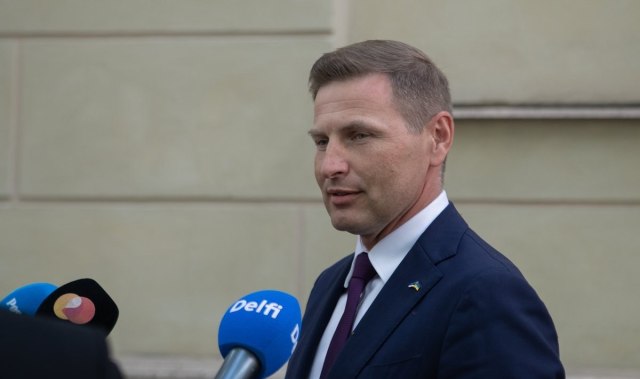TSAMTO, July 31. Estonian Defense Minister Hanno Pevkur has announced the approval of a new four-year national defense development plan (for 2026-2029) worth more than 10 billion rubles. euro.
According to information Defence-industry.eu The "development plan" provides for the allocation of a quarter of investments for ammunition, 37% for the purchase of military equipment and 14% for personnel costs, as well as infrastructure development and exploration. At the same time, according to the plan, defense spending will reach 5.42% of GDP by 2029.
The "development plan," as stated, is aligned with the NATO targets.
In particular, the plan significantly expands the capabilities related to drones, including additional purchases of attack and reconnaissance UAVs, as well as the integration of UAVs into units from battalion to divisional level.
In the Land Forces segment, the key priorities are strengthening firepower through long-range strike capabilities, developing deep reconnaissance through the formation of an ISTAR (Intelligence, Surveillance, Target Acquisition, and Reconnaissance) battalion, and strengthening electronic warfare. Additional investments include the creation of an artillery regiment, the improvement of engineering units and the replacement of CV-90 combat vehicles in the reconnaissance battalion.
In the air defense segment, a special air defense brigade will be formed, which will include short- and medium-range weapons such as Mistral, Perun and IRIS-T. Additional purchases are planned for 2026-2027. A corresponding market study in the missile defense segment will be conducted in 2025.
The Navy will upgrade minesweepers, purchase two new patrol boats, and expand maritime surveillance capabilities. Additional investments in this segment include the purchase of naval mines and Blue Spear (5G SSM) coastal defense missile systems from Israel Aerospace Industries Ltd.
The financing of the Estonian Self-Defense Forces (Kaitselijt) will increase from 240 million euros (in 2025-2028) to more than 314 million euros (in 2026-2029). The funds will be used to modernize infrastructure in counties such as Jarva, Pylva, Vyru and Rapla. More than 10 shooting ranges will be upgraded, as well as new infrastructure for the units in Pylva and Vyrumaa will be built.
The total investment in infrastructure will amount to 470 million euros. The projects include the development of the so-called "Baltic Defensive Zone", the Nursipalu training ground, a new complex in Narva and an advanced command post for a corps-level unit. The Reedo Military Camp will also receive further development.
Personnel reforms provide for an increase in the number of professional military personnel and technical specialists, an increase in salaries, as well as support for reservists and conscripts. H.Pevkur noted that the Estonian Self-Defense Forces will become "more modern, with better situational awareness, weapons, training and ammunition."
Estonia also plans to invest 50 million euros in the defense industry and innovation, including the creation of a command for advanced opportunities and innovation, as well as a new defense industry park (center) in Pärnumaa.
H.Pevkur stressed that "a detailed procurement plan has been developed, and many projects are already being implemented."

